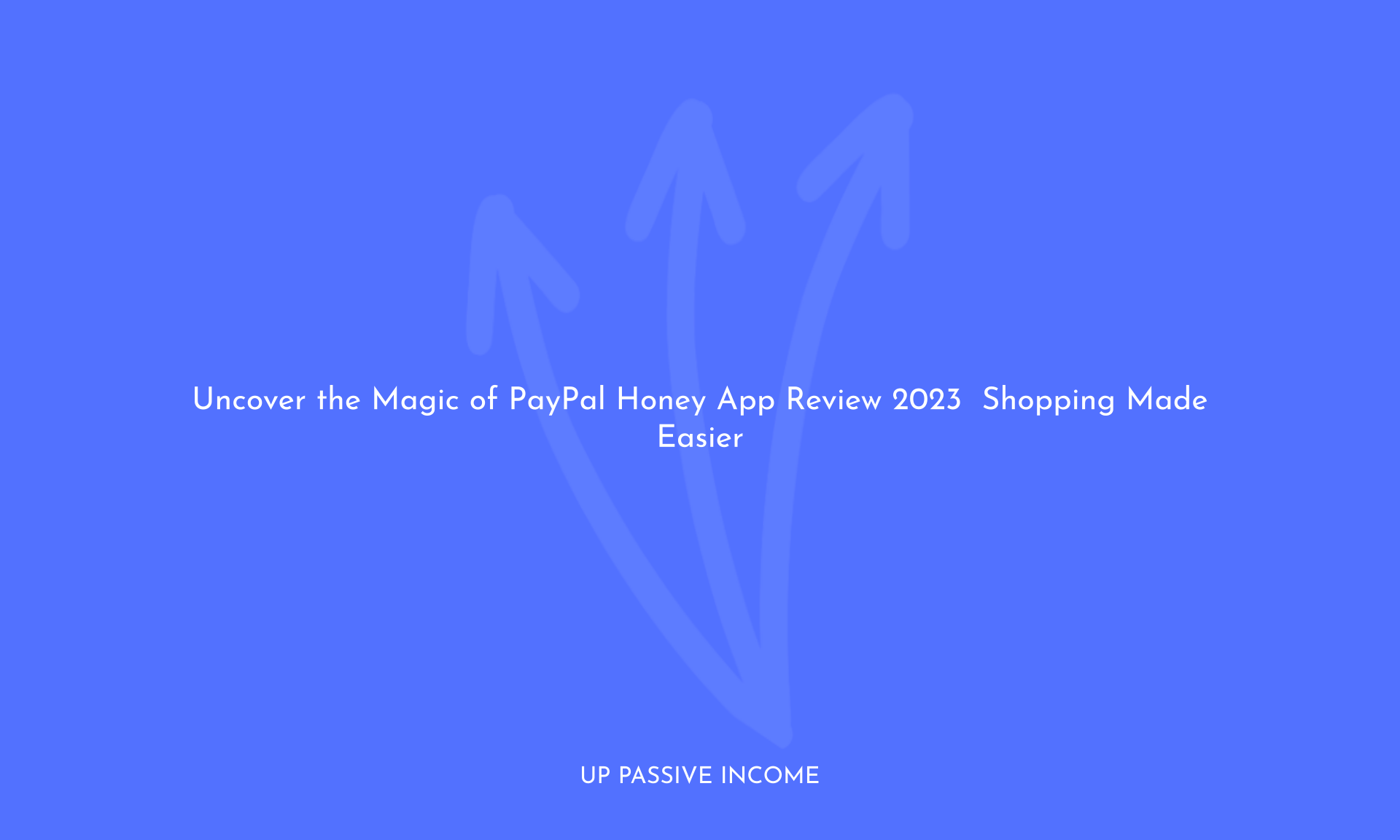When you’re managing your money, there are a lot of things to think about. I’ve seen a lot of DUMB mistakes through the years, but here are the 7 WORST
Are you making common financial blunders that could jeopardize your financial future? In this blog post, we uncover the 7 worst money mistakes frequently made by millennials. Discover practical tips and strategies to steer clear of these pitfalls and ensure a brighter financial future for yourself.
This isn’t the typical save more money, max your 401k, invest more money post. We all make mistakes and when it comes to money, and over the years I have made a lot of them. Here are my top 7 Millennial Money mistakes.
Table of Contents
1. Putting money first
This is the biggest money mistake I have made. Money is not everything and its not worth sacrificing your health, family, friends, or other experiences for it. I have spent too much time over the past five years working 80+ hour weeks and trying to make and invest as much money as possible. While I have been able to achieve my goal of becoming a millionaire millennial it has been at the expense of some of my personal relationships and health (gaining almost 40 pounds over the past 5 years!).
I have lost a few friends and strained other relationships because Ive spent too much time staying late in the office or hustling on the weekends. Even though I truly believe that having money is freedom, money is really just a tool to make experiences in life possible. Dont put making money first its just not worth more than your relationships or experiences. Since I stopped putting money first Im a lot happier, healthier, and living a wealthier life. Remember there is a difference between being rich and being wealthy.

2. Setting money goals, instead of lifestyle goals
Honestly Ive always had goals, but I wouldnt consider myself a goal driven person and when it comes to money thats a problem. My thinking, like a lot people, was I want to make more money and I have a number in my head that I am shooting for but those are just money goals. What matters most is setting lifestyle goals. Making and saving more money is only useful if you have something in mind you want to use it for.
So what do you want to do with your money? What kind of lifestyle do you want? A lifestyle goal is: I want to make $20,000/month, have at least 3 income streams, be able to work less than 40 hours, take at least one month off a year, travel to the worlds top wineries, and pick up my kids from school everyday. Set lifestyle goals, not just money goals. Once I started setting lifestyle goals, I started making choices for how to live the life I want instead of just trying to make more money. Now its a lot easier for me to align my day-to-day priorities to achieve my goals and I started learning how to say no when an opportunity doesnt align with the lifestyle I am trying to live.
3. Saving too much money
Youre probably thinking shouldnt I be saving as much money as possible? No, you should be saving at least 10-30% of your money, but you shouldnt be saving all of your money. Like many things in life, saving/spending is about finding balance. It looks me awhile to figure this out and saving too much money was a big Millennial Money mistake. I made the mistake when I started really saving 5 years ago and saved too much of my money that I stopped really living.
I didnt want to go out, travel, and even stopped buying books so I could save 50%+ of my income. While this certainly helped me quickly build a nest egg that I am grateful to have, I was simply saving too much and stopped living the lifestyle that made me happy. I should have been spending money on experiences, my family, and sometimes even myself.
I personally recommend finding your sweet saving % and just sticking with it no matter how much or little money you are currently making for me that is now exactly 25%, as well as investing any windfalls from bonuses or new side hustle projects, but the other 75% I make from my primary income stream I now work hard to try actually try and spend and enjoy. I find it freeing to be able to spend this money knowing I have already saved 25% of my income.
It allows me to enjoy life without feeling guilty about spending money (which used to be a huge problem for me.) This rule has allowed me to continue to live below my means, but start enjoying things that I have before like occasionally splurging and staying in a five star resort for a perfect Napa Valley weekend or floor tickets to see Logic my favorite rapper. Save as much money as you are comfortable saving, as long as its at least 10-30% of your income, but use your money to live a richer fuller life.
Youll remember those Drake floor tickets more than the $600 or even the $1,500 that money would be worth in 20 years (assuming 5% annual compounded growth rate). Looking back youll remember the moments not the savings.
4. Trying to day trade and beat the market
Day trading or even trading stocks in general is pretty hard and the odds that you will consistently beat the market are nearly impossible. Sure some people do it and if you are one of them then hit me up @millennialmoney ! But most the professionals cant really do it. So dont try. Its not worth it. Sure I own and have made money owning some of the big tech stocks over the past five years (AMZN, FACE, GOOG), but five years ago when I started saving money and was unhappy with my 7% growth rate post recession I went looking for larger returns (now Id love that growth in my 401k…).
I was 25 and didnt know anything about trading so I lost a lot of money that I had worked really hard to save about $20,000 in one month buying stocks I didnt understand from my etrade app. But I learned from it and have set aside 10% of my portfolio to trade with and I only trade stocks that I understand. There are no sure things in investing, but its easy to match the market so I put a larger part of my investing portfolio in domestic, international, and emerging market index funds.
Most of my personal longer term stock investment strategy is built around the principles from The Coffeehouse Investor. This year my portfolio actually has beaten the S&P 500, but mainly because my emerging market funds are straight killing it.
5. Renting for too long
There are so many advantages to owning a home versus renting. You can also deduct your mortgage interest on your taxes, which ends up being thousands and thousands of dollars back for most people (its like a rebate for buying a house!). Buying a house or condo is also a tangible asset and a great way to diversify your portfolio. You can also live in your investment and let it appreciate (which if you live in a nice in-demand location it probably will).
The one advantage of renting that pro-renters tout is flexibility, but you still likely have a lease you cant get out of. You can probably sell a house in most markets faster than getting out of a lease, but I digress. In most markets in the US its cheaper to buy instead of rent if you are going to live in the same place for at least 3-5 years.
I rented for an extra year when I should have bought a condo at the bottom of the market. I was trying to save money for a 20% down payment, which was a stupid decision. Once I saw the property values starting to bounce back I jumped and bought my condo with only 5% down with a small PMI (private mortgage insurance) premium of $61/month to be able to buy my apartment.
This isnt always a good decision, but for me it was and heres why: I saw that prices were going up and I was confident that I could pay the mortgage at my current rate for at least the next 2 years comfortably. I was confident that a new job and learning how to start a consulting business were going to pay off. I also saved the $30,000 in my emergency fund in case I needed it for the mortgage down the road.
I made a very calculated decision and ended up paying down the mortgage quickly over the next year until I owed less than 80% of the assessed home value on the mortgage. I got the condo re-appraised the next year and refinanced to a lower rate without the PMI. If I would have bought the condo a year earlier with the same down payment I would have made 25% on my investment given rising home prices in my area.
Currently I have a 15 year mortgage at 2.625% and I am keeping the mortgage even though I could pay off my condo fully, because I am confident that I can get a higher return on my money than the 2.625% I would get by paying off the mortgage. Do the math, use a simple rent vs. buy calculator and buy it the numbers make sense. It could be one of the best money decisions you can make.
6. Buying a new (used) car too soon
I made the mistake that a think a lot of people do the moment I got my first well paying job I went out and bought a new (used) car. I would never buy a new car thats just crazy, but still I went out and bought a used car that immediately put me $30,000 in debt that I didnt need. At the time I was driving an old Nissan Maxima that honestly could have lasted me another 10 years Im pretty sure that old Maxima is still on the road today.
But I got the new job and was finally making enough money to buy a car that I have always wanted and yes the car does bring me a lot of joy to this day and I will keep it forever but it was a dumb thing to do when I should have been saving for an emergency fund. I also live in Chicago so now my car spends most of the time in the garage (I only drove it 1,200 total miles last year). I dont even need a car and if you live in a city you probably dont either. Even if you do need a car, its not worth going into debt to buy one. I wish that I would have put that $30,000 into savings and kept driving my old car.
7. Not hiring an expert when I needed one
One of the biggest money mistakes I have made is not hiring experts when I really should have. This one mistake has likely cost me $25,000 or more in lost money. Like a lot of people I naively thought that I could research what turned out to be complex tax and legal issues myself and figure them out. I was wrong. Have you ever tried to seriously read any tax code like seriously?
Well I have and its ridiculous circular and complicated. There is a reason people spend their whole careers trying to interpret tax code. Hiring experts like a lawyer, accountant, tax advisor, or even financial planner can be a really wise decision. Just search around and find someone that you can trust.
One misconception I had was thinking that most experts would be ridiculous expensive and cost per thousands of thousands of dollars while some certainly do, you can find expert help at an hourly rate and some experts (like lawyers) will even bill in 15 minute increments. I had what I thought was a super challenging question about LLC profit sharing plans that I couldnt find an answer for, so I called up literally one of the top experts in the US on LLC profit sharing plans and talked to him for 15 minutes the bill ended up being $300, but it was a lot cheaper than $1,200 for the full hour and I got the answer I needed which will hopefully net me at least $250,000+ if my company sells based on the information he shared.
Thats a pretty solid ROI on the $300. Financial planners for Millennials often charge on a per hour basis as well if you have an investment question. For more general legal advice I highly recommend Legal Zoom Legal Advantage Plus which gets you access to a massive network of legal experts for an unlimited number of 30 minute call consultations starting at $10 per month. On demand expert help has never been easier to find, so use others experience to your advantage. I now rely on experts for many of my tax, legal, and accounting questions and have ended up both saving and making more money.
What are some of your money mistakes?
Thanks to Source: https://millennialmoney.com/7-millennial-money-mistakes
money mistakes millennials must avoid



